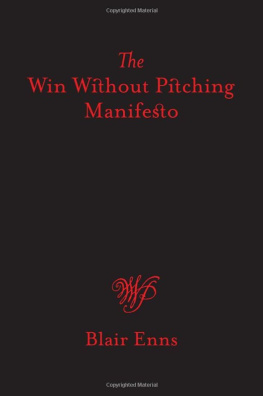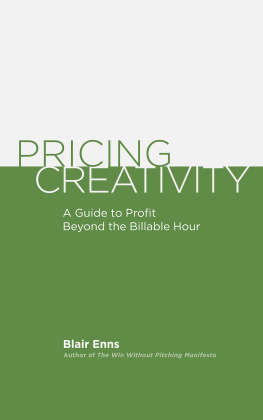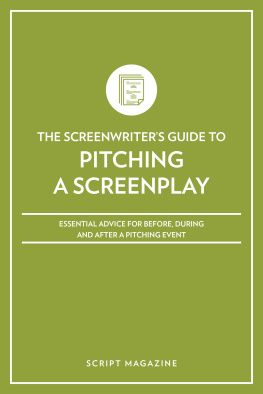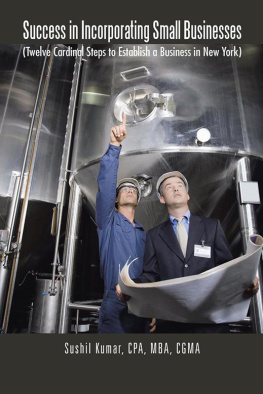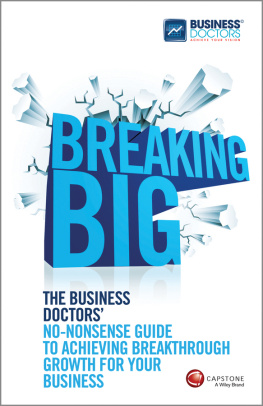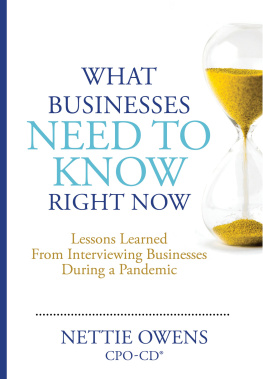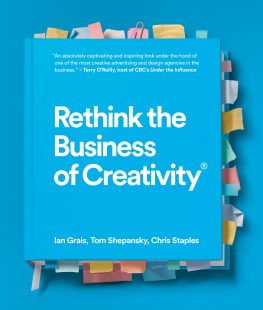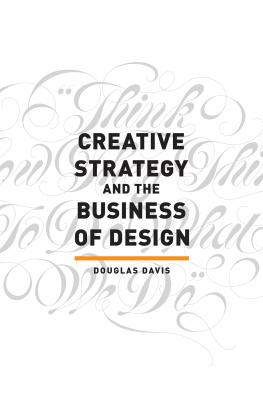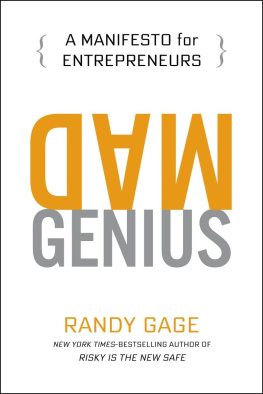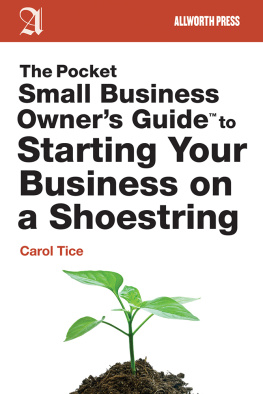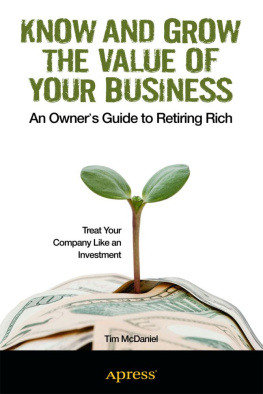The Win Without Pitching Manifesto

Blair Enns
Rockbench | Nashville | 2010
Table of Contents
For The People Who See,
so their enterprise may sustain their creativity
~
and for Colette, habibti
A Manifesto of Business Practices for Creative Firms
The forces of the creative professions are aligned against the artist. These forces pressure him to give his work away for free as a means of proving his worthiness of the assignment. Clients demand it. Designers, art directors, writers and other creative professionals resign themselves to it. Trade associations are powerless against it. Consultants and outsourced business development firms earn their living by perpetuating it. And conferences put the worst offenders from all sides on stage and have them preach about how to get better at it.
It is a mistake to look to the creative professions to deal with this issue. Free pitching and speculative creative will only be beaten one firm at a time, with little help and much loud opposition from the professions themselves. This battle is but a collection of individual struggles: the single artist or creative firm against the many allied forces of the status quo.
But while collectively the battle may seem lost, a revolution is afoot. Some creative firms are fighting and winning. They are reclaiming the high ground in the client relationship, beating back the pitch and winning new business without first having to part with their thinking for free. They are building stronger practices amid the forces of commoditization.
This treatise contains the twelve proclamations of a Win Without Pitching firm. It describes a trail blazed by owners of creative businesses who have made the difficult business decisions and transformed their firms, and the way they go about getting new business. They have resisted the profession-wide pressure to toe the free-pitching line. They have gone from order-taker suppliers to expert advisors and have forged a more satisfying and lucrative way of getting and doing business.
Their path, described in these pages, may not be your path. Not everyone has the heart or stomach for revolution. It is up to you to read and decide for yourself if you will follow.
Blair Enns,
Kaslo
Whenever you find yourself on the side of the majority, it is time to pause and reflect.
Mark Twain
pitch (verb)
[pch] To attempt to sell or win approval for ones ideas by giving them away for free, usually within a competitive, buyer-driven process
I
{The First Proclamation}
We Will Specialize
We will acknowledge that it is the availability of substitutes the legitimate alternatives to the offerings of our firm that allows the client to ask, and compels us to give, our thinking away for free. If we are not seen as more expert than our competition then we will be viewed as one in a sea of many, and we will have little power in our relationships with our clients and prospects.
The world does not need another generalist design firm. There are enough full service advertising agencies and marketing communication firms. The world is drowning in undifferentiated creative businesses. What the world needs, what the better clients are willing to pay for, and what our people want to develop and deliver, is deep expertise. Expertise is the only valid basis for differentiating ourselves from the competition. Not personality. Not process. Not price. It is expertise and expertise alone that will set us apart in a meaningful way and allow us to deal with our clients and prospects from a position of power.
Power in the client-agency relationship usually rests with the client. His power comes from the alternatives that he sees to hiring us. When the client has few alternatives to our expertise then we can dictate pricing, we can set the terms of the engagement and we can take control in a manner that better ensures that our ideas and advice have the desired impact.
When the alternatives to hiring us are many, the client will dictate price. He will set the terms of the engagement. He will determine how many of our ideas and how much of our advice we need to part with, for free, in order to decide if he will choose to work with us.
It is first through positioning our firm that we begin to shift the power in the buy-sell relationship and change the way our services are bought and sold. Positioning is the foundation of business development success, and of business success. If we fail on this front we face a long, costly uphill journey as owners of creative businesses.
The Purpose of Positioning
Positioning is an exercise in relativity. Our goal when endeavoring to position ourselves against our competition is to reduce or outright eliminate them. When we drastically reduce the real alternatives to hiring our firm, we shift the power balance away from the client and toward us. This power shift allows us to affect the buying process and increase our ability to protect ourselves from having to part with our thinking for free, from having to respond to wasteful and inefficient tenders or requests for proposals (RFP), and to otherwise devalue our own offering or increase our cost of sale.
The Three Steps of Positioning
Positioning is strategy articulated and then proven. These components of strategy, language and proof are laid out here as the three steps we must take to build deep expertise and meaningfully differentiate ourselves from others:
We must choose a focus
Then articulate that focus via a consistent claim of expertise
And finally, we must work to add the missing skills, capabilities and processes necessary to support our new claim.
What we call positioning , others more serious about the business of their craft call fundamental business strategy . The first step focus is to answer the strategy question of What business are we in? Choosing the focus for our firm remains The Difficult Business Decision. Too often, we decide to not decide and so, in our minds, leave open the possibility that we may continue to do all things for all types of clients. In creative firms the world over firms populated and run by curious problem solvers the avoidance of The Difficult Business Decision remains the root cause of most business development problems.
We can easily complete the second and third steps of positioning once we have summoned the boldness to tackle the first. For reasons hardwired into the brain of an artist, however, most of us fail in this vital first step.
The Benefits of Positioning
We can measure the success of our positioning by gauging our ability to command two things simultaneously: a sales advantage and a price premium.
A Sales Advantage To possess a sales advantage means that when and where we choose to compete, we win more often than not.
A Price Premium To command a price premium means that when we win, we do so not by cutting price, but while charging more.
Winning while charging more is the ultimate benefit and key indicator of effective positioning, for price elasticity is tied to the availability of substitutes. The more alternatives to our firm, the less power we have to command a premium over our competition. If we do not win while charging more then it is likely we are attempting to run a business of ideas and advice from a position of weakness; or we are trying to compete outside of our area of focus; or we have avoided The Difficult Business Decision altogether and have chosen, by not choosing at all, to run a business without a focus or a fundamental business strategy.
Control Beyond the combined benefits of a sales advantage and a price premium, positioning brings us control in the form of increased ability to guide the engagement. We are hired for our expertise and not our service. It is a mistake to believe that the service sector mantra of The customer is always right applies to us. Like any engagement of expertise, we often enter into ours with the client not truly knowing what he needs, let alone recognizing the route to a solution. For us to do our best work we need to leverage our outside perspective. We need to be allowed to lead the engagement. We need to take control.
Next page
